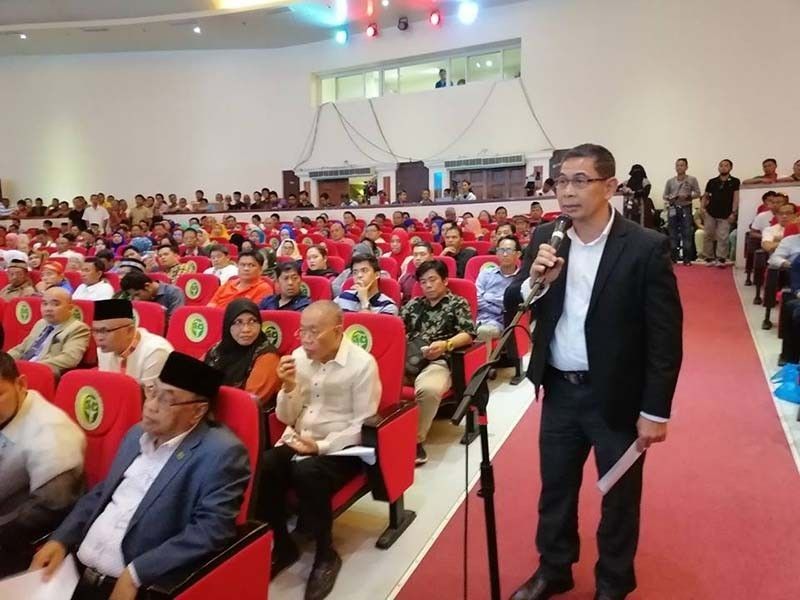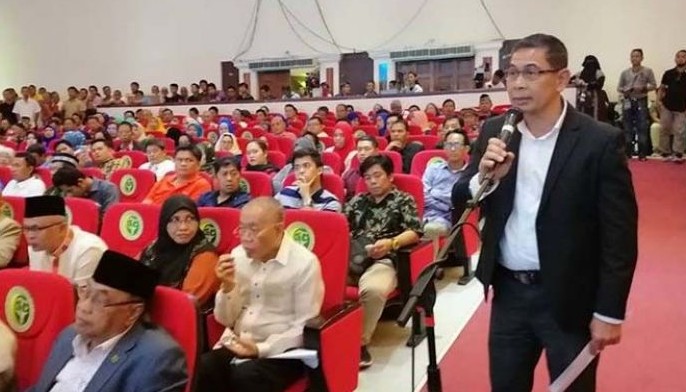Bangsamoro Parliament asks Duterte to veto anti-terrorism bill

MANILA, Philippines — The Bangsamoro Transition Authority Parliament on Thursday passed a resolution asking President Rodrigo Duterte to veto the anti-terrorism bill "to provide Congress the opportunity to review and address the issues of vagueness, overbreadth and other concerns."
Philstar.com has yet to access a copy of Resolution 239 but a source has confirmed that it has been passed. According to a report by Davao City-based MindaNews, it was passed without objection. The resolution has also been amended to list all members of the parliament as authors.
MindaNews said the resolution "respectfully appeals" to the president to veto the bill.
It also calls for an anti-terrorism bill that will "clearly establish conduct that is lawful from unlawful to avert any misinterpretation and arbitrary, and discriminatory enforcement in its implementation, giving individuals adequate notice of their legal obligations so that they can govern their behavior accordingly."
RELATED: Infirmities that rights expert flagged in Human Security Act also in anti-terrorism bill
MindaNews also reports that Bangsamoro Autonomous Region in Muslim Mindanao Chief Minister Ahod Ebrahim, also known as Al Haj Murad, sent the parliament a letter on June 22 saying his position was to call on the president to veto the bill.
"As the leader of a political entity born out of the struggle against injustice and oppression, it is my moral duty to speak out in order to ensure the measures intended to address terrorism will not be used as a means to subvert the fundamental rights and freedoms of individuals, in general, and normalize abuse and discrimination against the Bangsamoro, in particular," he also said.
In his letter, Ebrahim made clear that "while we agree that a policy framework needs to be enacted to fight the menace of terrorism, we feel that the fundamental guarantees of liberty and the institutions of democracy must be protected."
Lawyers and civil society groups have said that the bill, which is now waiting for the president's signature, is prone to abuse and could be used to crack down on dissent and on criticism of the government.
The Department of the Interior and Local Government has said that the provisions in the bill do not target activists while supporters of the bill, including Sen. Panfilo Lacson, say that there are enough safeguards in the bill to hold security forces accountable for abuse.
RELATED: Anti-terrorism bill now on 'final review,' a week before automatic enactment
Bangsamoro leaders' concerns
Bangsamoro leaders had also previously raised concerns over the bill, saying also that Filipino Muslims have been victims of terrorism and of the prejudice and abuse that counterterrorism operations often come with.
Rep. Mujiv Hataman, former regional governor of the defunct Autonomous Region in Muslim Mindanao, said that recruitment into terrorist groups could be better addressed by addressing resentment and poverty.
Hataman said that previous attempts to crush the Abu Sayyaf Group in Basilan, like when a "state of lawlessness" was declared in Basilan in 2001, were less successful than a more recent approach of providing Abu Sayyaf surrenderees with livelihood opportunities.
"At the time, almost if not more than 300 were arrested but it did not stop terrorism. And in fact, it intensified because the relatives of those arrested became vulnerable to recruitment by [Abu Sayyaf] who were still at large."
Member of Parliament Zia Alonto Adiong, at an online forum, said the "social injustice narrative", of the government abusing and ignoring the country's Muslims, remains and that groups can and have exploited it for recruitment.
"Until now, these are open wounds. There has been no acceptance from the state that these happened. No apologies. In fact, there are still some who deny that the Jabidah Massacre even happened. So, this does not help."
MP Anna Tarhata Basman, a lawyer, said in a separate online forum that lawmakers did not include the experiences of Filipino Muslims in the discussion on the anti-terrorism bill.
"Overall, this is a problematic omission [because] it is the Muslim communities that have been hurt the most by terrorism in this country. It is also the Muslim community that will likewise suffer the overreach and abuse [if the bill becomes a law]," she said. — Jonathan de Santos
- Latest
- Trending






























